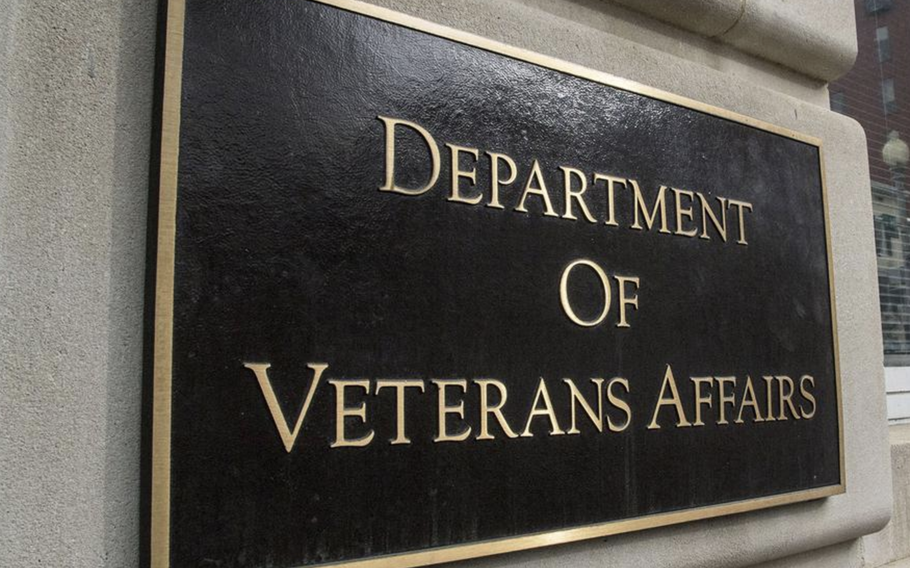
The Senate on Thursday approved $3 billion in emergency funding for Department of Veterans Affairs to cover a shortfall in the agency’s fiscal 2024 budget. (Stars and Stripes )
WASHINGTON — The Senate on Thursday adopted an emergency spending bill to fill a nearly $3 billion shortfall in the Department of Veterans Affairs’ fiscal 2024 budget, ensuring millions of veterans will continue to receive their monthly benefits without disruption.
Passage of the spending measure, by voice vote, covers payments for disability compensation, retirement pensions and tuition assistance under the GI bill. The House passed a similar measure Tuesday night.
“This legislation now heads to the president’s desk to be signed into law,” said Sen. Jon Tester, D-Mont., who is chairman of the Senate Veterans’ Affairs Committee.
The House and Senate versions of the bills are similar and will not need to go to conference committee for review, according to Tester’s office.
“I’m proud the Senate was able to act quickly today to ensure that 7 million veterans and their families receive their benefit checks on time in 12 days,” Tester said.
Republican lawmakers have accused the VA of improper budget management and for waiting nearly two months to disclose the shortfall to Congress.
“VA’s struggles with budgeting and management have existed for many years and will not be resolved overnight,” said Rep. Matt Rosendale, R-Mont., who sits on the House Veterans’ Affairs Committee. “I, for one, don’t believe this is the last shortfall that the VA will find itself in, or the last supplemental appropriation that Congress will be asked to provide.”
The legislation does not pay for a projected $12 billion budget gap projected for fiscal 2025.
Robert Thomas, president of the Paralyzed Veterans of America, said the larger shortfall still needs to be remedied.
“Today’s VA funding bill resolves only a portion of VA’s overall needs,” he said. “As a veteran with a spinal cord injury, I assure you this vulnerable patient population cannot afford a disruption of any kind to their VA medical care. There is no other option for us outside of the VA. Lives will be lost if this issue is not addressed with the utmost haste.”
The legislation that the Senate adopted Thursday is a companion bill to the Veterans Benefits Continuity and Accountability Supplemental Appropriations Act that Rep. Mike Garcia, R-Calif., led in the House. That bill also passed on a voice vote.
The bill also requires more oversight of the VA spending plan and orders a root-cause analysis to determine the reasons for the budget gap.
VA leaders had warned they would not be able to process monthly payments to veterans on time without Congress covering the 2024 budget shortfall by Friday. Payments are due to be sent to beneficiaries on Oct. 1.
The VA did not respond Thursday to a request for comment.
Joshua Jacobs, the VA undersecretary for benefits, said Wednesday at a Senate committee hearing that the $3 billion represents about a week’s worth of compensation to veterans.
About 140,000 veterans who largely live in rural areas and are elderly receive their compensation by check in the mail. The VA had said those payments could be delayed by weeks if Congress delayed passing the emergency funding.
The VA attributed the combined $15 billion shortfall to a surge in demand for benefits from veterans since passage of the Sergeant First Class Heath Robinson Honoring our Promise to Address Comprehensive Toxics Act, or PACT Act.
Adopted in 2022, the PACT Act expanded benefits to veterans with illnesses and injuries related to toxic exposures, including from burn pits and other airborne hazard, during military duty.